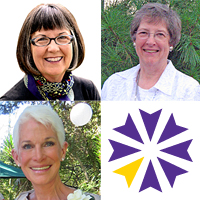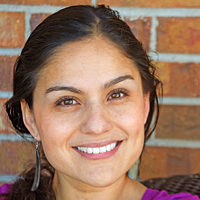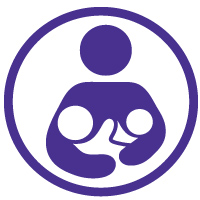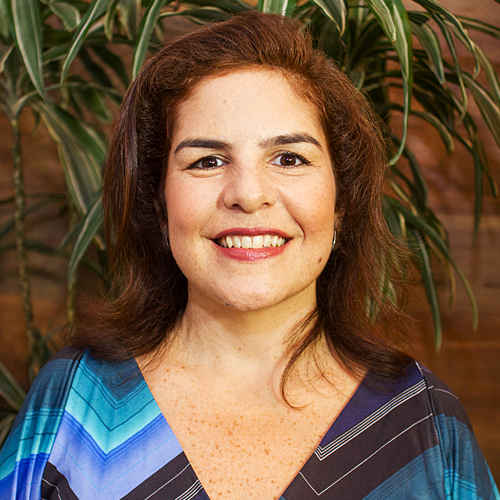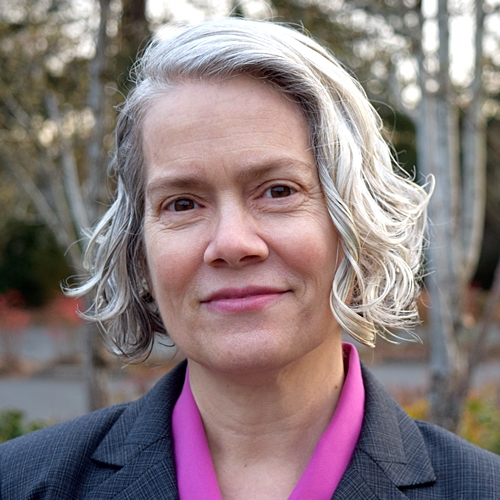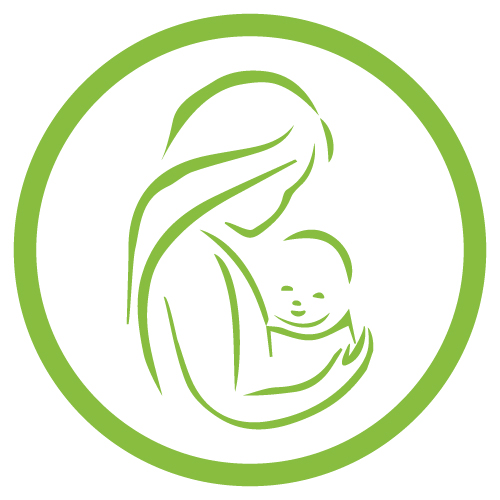 IBCLC Detailed Content Outline: Psychology, Sociology, and Anthropology Focused CERPs - Section V
IBCLC Detailed Content Outline: Psychology, Sociology, and Anthropology Focused CERPs - Section V
Access CERPs on Psychology, Sociology, and Anthropology for the IBCLC Detailed Content Outline recertification requirements. Enjoy convenient on-demand viewing of the latest Psychology, Sociology, and Anthropology focused IBCLC CERPs at your own pace.
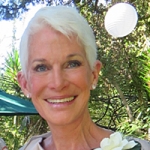
First Touch, First Food, First Hour …in a mother’s hands

Dr. Jane Morton has had a long, fulfilling career as a general pediatrician, She has also had a long-standing interest in breastfeeding, from understanding its clinical benefits to practical solutions for mothers having difficulty in providing breastmilk to their infants. Over the years, she has conducted research on human milk and breastfeeding and has designed and implemented systems and policies to help breastfeeding mothers. She produced award winning videos on this topic, including “Breastfeeding: A Guide to Getting Started”, “A Preemie Needs His Mother: Breastfeeding a Premature Baby” and “Making Enough Milk, the Key to Successful Breastfeeding”. These have been translated and widely used in thousands of hospitals to train both staff and new mothers. As an executive board member of both the Academy of Breastfeeding Medicine and the American Academy of Pediatrics Section on Breastfeeding, she enjoyed working to enlarge the footprint of breastfeeding, both nationally and internationally.
For a 5 year period, she joined the neonatology clinical faculty at Stanford to develop the Breastfeeding Medicine Program. In that position, she had the opportunity to design a nationally recognized educational program, conduct and publish original research on milk production and composition in mothers of very low birth weight infants, and publish a study with the AAP on the efficacy of a breastfeeding curriculum for physician residents in training. She was an advisor to the California Perinatal Quality Care Collaborative, and was a key author of the toolkit “Nutritional Support for the Very Low Birth Weight Infant”. She co-authored the book Best Medicine: Human Milk in the NICU. She has published extensively and presented her original research and educational workshops internationally. She continues to teach at Stanford where she is an Adjunct Clinical Professor of Pediatrics, Emerita.
Topic: First Touch, First Food, First Hour …in a mother’s hands - [View Abstract]
The risk of early termination of breastfeeding typically relate to complications with a) attachment, b) breastmilk production, or c) the caloric intake of the infant. Simply put, A, B and C. Could hand expression taught in Labor and Delivery to every mother reduce early termination and the health, financial and emotional morbidity associated with breastfeeding complications in both low and high risk infants? This presentation will examine this question, focusing on the purpose of teaching early hand expression, the available science and the practice of integrating this technique into first hour care.
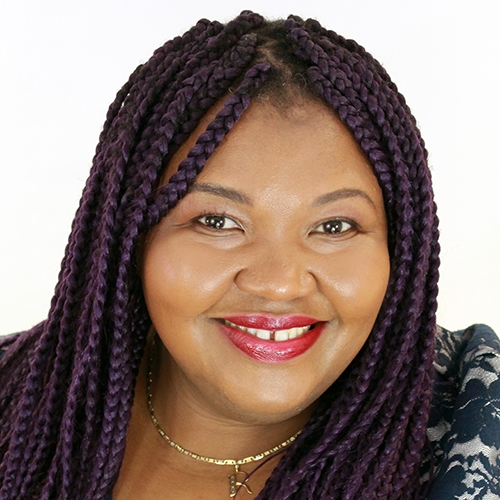
Foetal Programming and the Impact of Stress

Dr. Ruth Oshikanlu MBE is a multi-award winning nurse, midwife and health visitor. A nurse entrepreneur, consultant, leader and parenting expert, she is passionate about supporting vulnerable children and their families to reduce health inequalities and improve their life outcomes. Her previous roles include: HIV specialist midwife, Family Nurse at one of the first pilot sites of The Family Nurse Partnership intensive home visiting parenting programme for vulnerable families, and Nurse Leader of The Lewisham Young People’s Health and Wellbeing Service.
Ruth is a Pregnancy Mindset Expert and supports pregnant women who have had assisted conception or previous pregnancy loss. She is the author of Tune In To Your Baby: Because Babies Don’t Come with An Instruction Manual.
Ruth is a Queen’s Nurse, Fellow of The Institute of Health Visiting, Royal College of Nursing and The Royal Society of Arts. She is the recipient of several national healthcare and business awards; a regular columnist and has published several feature articles in numerous national nursing and healthcare journals.
Ruth was appointed a Member of the Order of the British Empire (MBE) in the New Year 2019 Honours List for being an Ambassador for the Health Visiting Profession and for services to Community Nursing, Children and Families. She is a Churchill Fellow and was awarded an honorary doctorate degree from London South Bank University in November 2019.
Topic: Foetal Programming and the Impact of Stress - [View Abstract]
Foetal programming refers to changes in the environment in utero during specific critical or sensitive periods and the long-term effect on the child. Maternal stress and anxiety during pregnancy represents an important aspect of the intrauterine environment and can alter the development of the foetus and child and can influence many, if not all, developmental outcomes. The presentation will explain what foetal programming is, why it matters and discuss how stress impacts it. It will discuss the importance of building therapeutic relationships with clients and their families. It will conclude with the tools and strategies to equip professionals who work with women, children and their families to better support them in pregnancy and the first three years of life.


Paulina is the mother of three multicultural Latino children and Project Director for Lifespan Local. Paulina earned her BS in Psychology from the Pennsylvania State University, a MS in Organizational leadership from the University of Denver and is completing her PhD in Health and Behavioral Sciences at the University of Colorado - Denver. Paulina has over 18 years of experience working with families with young children. As a Maternal Child Health specialist for Jefferson County Public Health, she developed a NICU follow-up home visitation program and the pediatric emergency preparedness plan, co-founded and coordinated the Conectando Network (former Adelante Jeffco), established community navigation and lactation support groups focused on the Latino Spanish speaking community, and lead other initiatives to support leadership and partnerships among communities and organizations. During the COVID-19 pandemic, she managed the new program Whole Community Inclusion to ensure the pandemic response and recovery implementation included health equity practices that recognize the needs and the strengths of priority populations in the county. Her areas of current work include promoting perinatal and infant mental health along the continuum of care; building community capacity to navigate health and education systems; facilitating organizational change to embrace linguistic and culturally responsive practices; and establishing community-placed participatory programs to strengthen communities. She likes to be with people, learn from and with others, and connect passions for meaningful work.
Topic: From the NICU to the home: mother’s experiences - [View Abstract]
Topic: Leadership Skills in Lactation: Make Extraordinary Things Happen - [View Abstract]
Topic: Liderazgo en Lactancia - Para Alcanzar Metas Extraordinarias - [View Abstract]
Topic: Nursing A Preemie, Perspectives For Lactation Supporters and Professionals - [View Abstract]
Lactation consultants would benefit from expanding their understanding of the impact of the NICU stay on the family; moreover, they would benefit from identifying the essential role they could play in assisting families to accomplish a positive, healthy, and smooth transition home.
Despite continuing efforts to reduce prematurely worldwide, a significant number of infants are born too early or in a fragile medical condition. Many of these infants experience a lengthy stay at the NICU. Lactation support varies across facilities, but families, especially mothers, develop strong connections with their lactation consultant. As one of their most consistent providers in the NICU, the lactation consultant has the opportunity to recognize families’ need for continuing support after discharge and strategies to protect the breastfeeding relationship, attachment, and mental health in the long term.

View Details / Enroll
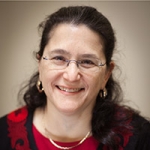
Getting Milk to Babies: Social, medical, economic and commercial forces

Naomi Bar-Yam, PhD, ACSW, has been working in maternal and child health for over 30 years as an educator, researcher, advocate, and writer. She is the immediate past president of the Human Milk Banking Association of North America (HMBANA) and the founding director of Mothers’ Milk Bank Northeast, which provides safe donor milk to hospitals and families throughout the northeastern US. An expert on access to perinatal health care and policies that support breastfeeding, she has been a consultant to the Centers for Disease Control (on a panel that created “The CDC Guide to Breastfeeding Interventions”), to the United States Breastfeeding Committee (developing an issue paper addressed to CEOs and legislators on breastfeeding and the workplace), and to the March of Dimes (developing educational material for women and families who are medically and socially vulnerable to high-risk pregnancy). She also developed a curriculum for hospital personnel about combining breastfeeding with their work. She reviews articles submitted to the Journal of Human Lactation, Breastfeeding Medicine, and other publications related to breastfeeding, milk banking, and access to perinatal child care. As Executive Director of Mothers’ Milk Bank Northeast, she is thoroughly versed in the technical, procedural, and ethical aspects of milk banking. She often speaks at professional conferences, hospital staff trainings, and grand rounds about milk banking and breastfeeding policies.
Topic: Ethical Concerns in Human Milk Exchange - [View Abstract]
Topic: Getting Milk to Babies: Social, medical, economic and commercial forces - [View Abstract]
Topic: The Whys and Hows of Using Banked Donor Milk - [View Abstract]
Successful infant feeding is crucial to the survival of babies and the human race. Throughout history and across the world, societies have had to address alternatives to maternal breastfeeding. We will present an overview of the history of infant feeding, including the forces involved in the decline of breastfeeding and wet nursing and the rise of “scientific” infant feeding, commercial infant formulas and milk banking. We will also define and discuss milk kinship practiced in Islam and throughout the Far East and Middle East. We will cover as well the forces and organizations involved in the rise of breastfeeding, milk sharing, and milk banking over the last 2-3 decades, and the social, economic and commercial forces impacting infant feeding today. We will conclude with a discussion of how history can help us understand and influence future trends.
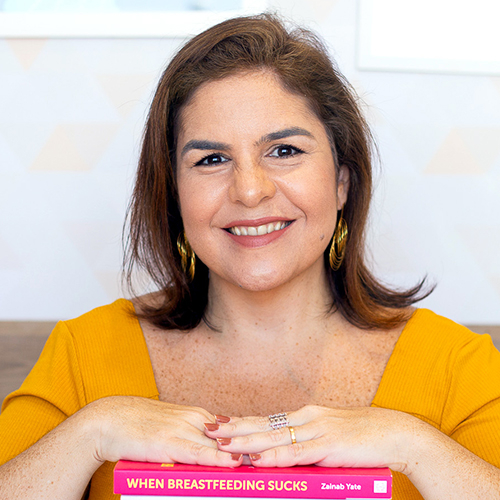

Bianca Balassiano has been working with families in private practice since 2008 as an IBCLC and perinatal psychologist/maternal-child health specialist. As a natural consequence of her professional background, has supported breastfeeding families into achieving individual goals while maintaining mental health and stimulating a holistic look towards the subject. Since 2014 is also working as an educator for healthcare professionals in one of the most recognized breastfeeding courses in Brazil, currently offering virtual classes and all over the country. Lives with husband and two children in Rio de Janeiro, Brazil. In 2020, she launched her first book aimed at families with the title "Gradual Weaning: How to Bring Your Breastfeeding Story to a Happy End".
Topic: Lactation After Bariatric Surgery: Physiological, Hormonal and Psychological Implications - [View Abstract]
Weaning is a very controversial topic when talking about breastfeeding. Nevertheless, a lactation consultant should be the professional addressed to guarantee mothers a good experience when finishing this process. When the child is 18 months or older, it is possible to develop a plan of gradual weaning that can adjust to their routine, and please both mother and child - respecting everyone's time and rhythm. When a mother is ready to move on and wishing to re-encounter herself, if we have a baby that is ready to communicate in other ways besides the breast, it is important to develop skills and a plan of action to give breastfeeding the beautiful end it deserves.

View Details / Enroll
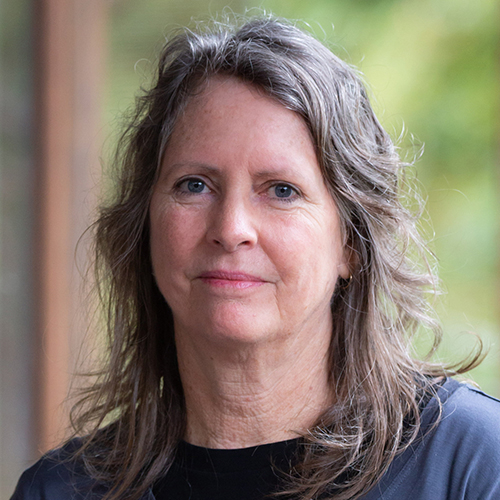
Hand Jiggling the Pelvis in Birth: Creating Space & Improving Labour Progress

Jenny Blyth has been supporting women & parents through natural birth for over 40 years. She is an independent birth educator, birthworker, bodyworker, Associate Practitioner of Ortho-Bionomy, Spinning Babies® Approved Trainer, Spinning Babies® Aware Practitioner & Trainer, & Internal Pelvic Release Work Practitioner & Trainer. Her particular focus is on body awareness & body preparation for birth & recovery, & encouraging greater self-responsibility in parents - to realise potential in birth & reduce birth trauma. She specialises in pelvic bodywork for wellbeing, balance, comfort & healing. Other birthwork interests include nourishing birthing wisdom & challenging beliefs & assumptions about birth care. Jenny regularly facilitates workshops in Australia & overseas. She is project co-ordinator for Lao Birthwork, teaching hands-on & emergency skills to health staff in remote areas of Northern Laos. She is also an author – The Down to Earth Birth Book, Birthwork - & filmmaker -The Big Stretch films & A World of Birthworkers. Jenny lives in the Australian bush with her partner, and is the mother of 3 grown children and grandmother of 3.
Jenny Blyth has been supporting women & parents through natural birth for over 40 years. She is an independent birth educator, birthworker, bodyworker, Associate Practitioner of Ortho-Bionomy, Spinning Babies® Approved Trainer, Spinning Babies® Aware Practitioner & Trainer, & Internal Pelvic Release Work Practitioner & Trainer. Her particular focus is on body awareness & body preparation for birth & recovery, & encouraging greater self-responsibility in parents - to realise potential in birth & reduce birth trauma. She specialises in pelvic bodywork for wellbeing, balance, comfort & healing. Other birthwork interests include nourishing birthing wisdom & challenging beliefs & assumptions about birth care. Jenny regularly facilitates workshops in Australia & overseas. She is project co-ordinator for Lao Birthwork, teaching hands-on & emergency skills to health staff in remote areas of Northern Laos. She is also an author – The Down to Earth Birth Book, Birthwork - & filmmaker -The Big Stretch films & A World of Birthworkers. Jenny lives in the Australian bush with her partner, and is the mother of 3 grown children and grandmother of 3.
Jiggling the external pelvic soft tissues by hand is a highly effective and recommended way to mobilize the pelvis, release tension, synchronize body systems, create more space to optimise or change the baby's position, and calm the nervous system – in pregnancy and in birth. It has also been known to facilitate labour progress in general, and in particular when labour has stalled. Highly enjoyable and simple to implement, it is an easy-to-teach practice for both care-providers and couples. This presentation will cover the why and how of pelvic jiggling, including touch considerations and contraindications.
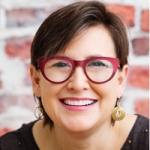

Maureen Campion MS LP is a licensed psychologist and relationship expert. She specializes in the early years of parenting and building securely attached families. Through her weekly newsletter Notes from a Marriage Geek and workshops she offers inclusive, research based marriage and parenting education. She turned her personal birth trauma experience into a passion for guiding couples through their healing and is the author of Heal Your Birth Story. Find Maureen at Marriagegeek.com
While we know how joyous and beautiful birth can be, we also know that about 10-15% of women experience something traumatic at birth. Birth trauma impacts mothers, babies and those that care for them. Psychologist Maureen Campion has been offering her Healing Birth Stories workshop for 9 years and turned her professional and personal work into a book that supports women and families on their healing journey. She offers compassionate and effective tools to support both survivors and the professionals that work in this field. Come join us as we delve into the tough emotions around birth and explore our own trauma while looking at healing and transforming the stories we carry around birth.
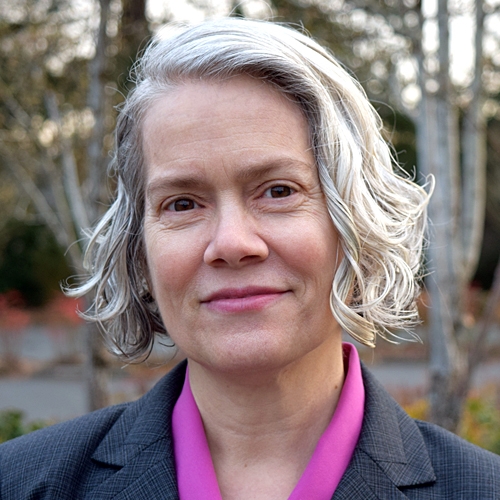
Heartbroken: Loss and Grief in the Perinatal Time Period

Cynthia Good, MS Clinical Psychology, is an International Board Certified Lactation Consultant, Clinical Counselor, author, consultant, and internationally recognized speaker. She is the Director of LifeCircle Consulting, LLC and is Certified in Acute Traumatic Stress Management. She is based in the Seattle, Washington, USA area, where she formerly served as an Adjunct Professor in the Department of Midwifery at Bastyr University where she taught counseling skills and is a therapist at Sandbox Therapy Group where she works with children, adults, and families. Cynthia has a strong interest in the emerging field of lactational psychology. She brings the evidence and insights of psychology and lactation consulting to her presentations, providing information and teaching skills that are essential to understanding and effectively responding to the complex psychosocial realities of families living in diverse contexts. The focus of her presentations includes communication skills and counseling techniques for perinatal care providers; equity, diversity, and inclusion; infant feeding rhetoric; perinatal mental health; perinatal loss, grief, and trauma; ethics; serving as an expert witness in lactation-related court cases; cultural competence and humility; vitamin D; and more.
Topic: Cultural Competence or Cultural Humility? A Roadmap for Lactation Specialists - [View Abstract]
Topic: Heartbroken: Loss and Grief in the Perinatal Time Period - [View Abstract]
Topic: It Wasn’t Supposed to be Like This: Traumatic Birth, Traumatic Stress, and Breastfeeding - [View Abstract]
Topic: My Brain is Doing What? Bias, Ethics, and the Lactation Specialist - [View Abstract]
Topic: Perinatal Mental Health Screening: A Primer for Lactation Specialists - [View Abstract]
Topic: The IBCLC as Expert Witness: Role, Strategies, and Resources - [View Abstract]
Topic: The Rug Pulled Out from Underneath Me: Depression During Pregnancy and After Birth - [View Abstract]
Topic: Unpacking the Invisible Diaper Bag of White Privilege: An Overview of Racial Inequities in Breastfeeding Support - [View Abstract]
Topic: We’re Human, Too: Hidden Dynamics in Our Communication with Clients - [View Abstract]
A variety of losses and types of grief are common in the perinatal time period. Some of these losses are specifically related to the reproductive and perinatal experience and some just happen to occur during pregnancy or after birth. Perinatal care providers who understand the diverse experience of loss and grief are better able to provide compassionate and effective care for the families they seek to serve. This presentation provides an overview of loss and grief, including the difference between bereavement, grief, and mourning; ambiguous loss; disenfranchised grief; prolonged grief; chronic sorrow; and depression. It also describes skills—such as companioning, screening, and referral—that are part of providing grief-sensitive care to expectant and new parents who are coping with loss and grief.

View Details / Enroll
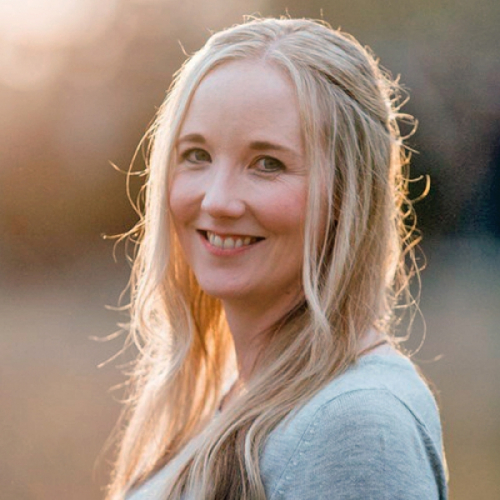

I am a Clinical Psychologist and transformation coach for women. I’ve also taught childbirth education. I have 12+ years experience supporting families through the worst traumas imaginable, to find growth, strength and beautiful resilience they never knew possible. After experiencing my own birth trauma (twice!) I quickly learned how little support and training there is for our birth workers who hear and witness these stories every day. From this, I developed two birth trauma training courses – one for parents, and one for birth workers. I gained over 650 enrolments in 3 months, so I know how much this work is needed. I also run a birth trauma training podcast, and I’m currently finishing writing my book. A beautiful, heartfelt call to action for families to not only find strength and growth after birth trauma, but to become the guardians of change in birth culture for the next generation.
"Birth trauma impacts at least 1 in 3 birthing people, but who is often left out of the picture? The partners. Vicarious trauma in birthing partners is very real, and yet there is little to no acknowledgment let alone resources to help.
Witnessing birth trauma in one’s partner has the potential to: (1) create severe cognitive dissonance (“I know what happened to my partner was wrong, yet I did nothing to stop it”), (2) contribute to unresolved feelings of shame, guilt, helplessness and rage, and/or difficulties with bonding (3) contribute to heightened nervous system activity (e.g., oscillating between ‘fight’ mode and ‘freeze’ mode), and (4) contribute to unhelpful, negative birth storytelling culture which minimizes the role of partners.
On the contrary, partners who are well supported (emotionally, cognitively and socially) have phenomenal potential for growth. In this presentation, we will explore what it means to work with partners through the lens of posttraumatic growth. How to validate and educate about trauma in a way that allows partners to step into self-compassion. We will explore how to inspire partners to see their own potential for growth, leadership and even advocacy.
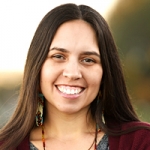
Historical Trauma, Racism and White Privilege: The Barriers to Breastfeeding Success

Camie Jae Goldhammer, MSW, LICSW, IBCLC, (Sisseton-Wahpeton) is a Clinical Social Worker and Lactation Consultant. Camie received her Master of Social Work degree from the University of Washington in 2006, specializing in Maternal Mood Disorders and the affects of complex/Intergenerational trauma on attachment, bonding and the parenting practices of Native families.
Camie is the founder and chair of the Native American Breastfeeding Coalition of Washington. She is also a founding mother and President-Elect of the National Association of Professional and Peer Lactation Supporters of Color. In 2013 she became Washington state's first Native American IBCLC. Camie is a consultant with CHEER and is also a part of the Center for Social Inclusion’s First Food Racial Equity Cohort. Recently she worked as a Campaign Director with MomsRising working to bring paid family and medical leave to Washington State which was signed into law in July 2017. She is now a member of the MomsRising breastfeeding team. She is a National leader on topics of racial equity and first food justice and recently launched the Indigenous Breastfeeding Counselor training.
Topic: Historical Trauma, Racism and White Privilege: The Barriers to Breastfeeding Success - [View Abstract]
Too often when discussing barriers to breastfeeding there tends to be a focus on education, poverty, and familial support. However, when we truly look at the causes of health disparities and inequities it is racism and discrimination that are at fault. For many of us, this can be a difficult realization and conversation to have. In this session, Ms. Goldhammer will discuss how Communities of Color are impacted by intergenerational trauma specifically when it comes to attachment and bonding as well as the role that racism and white privilege play in today’s modern day field of lactation. She will conclude with ways in which we can create meaningful impact and further advance racial equity in our field and most importantly in the communities we serve.

View Details / Enroll
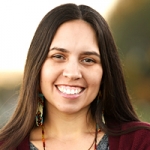
View Details / Enroll



